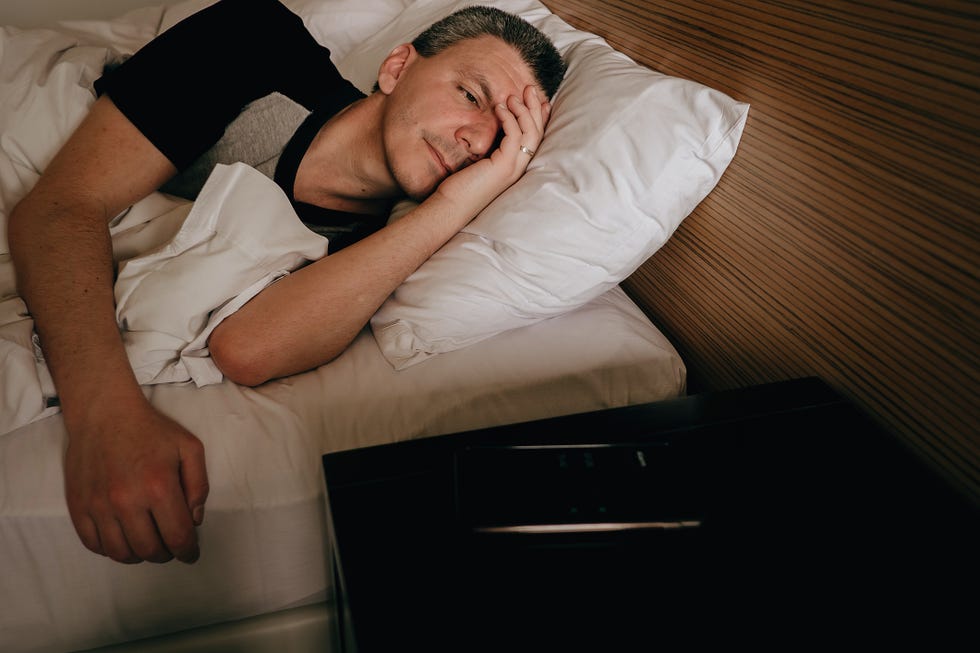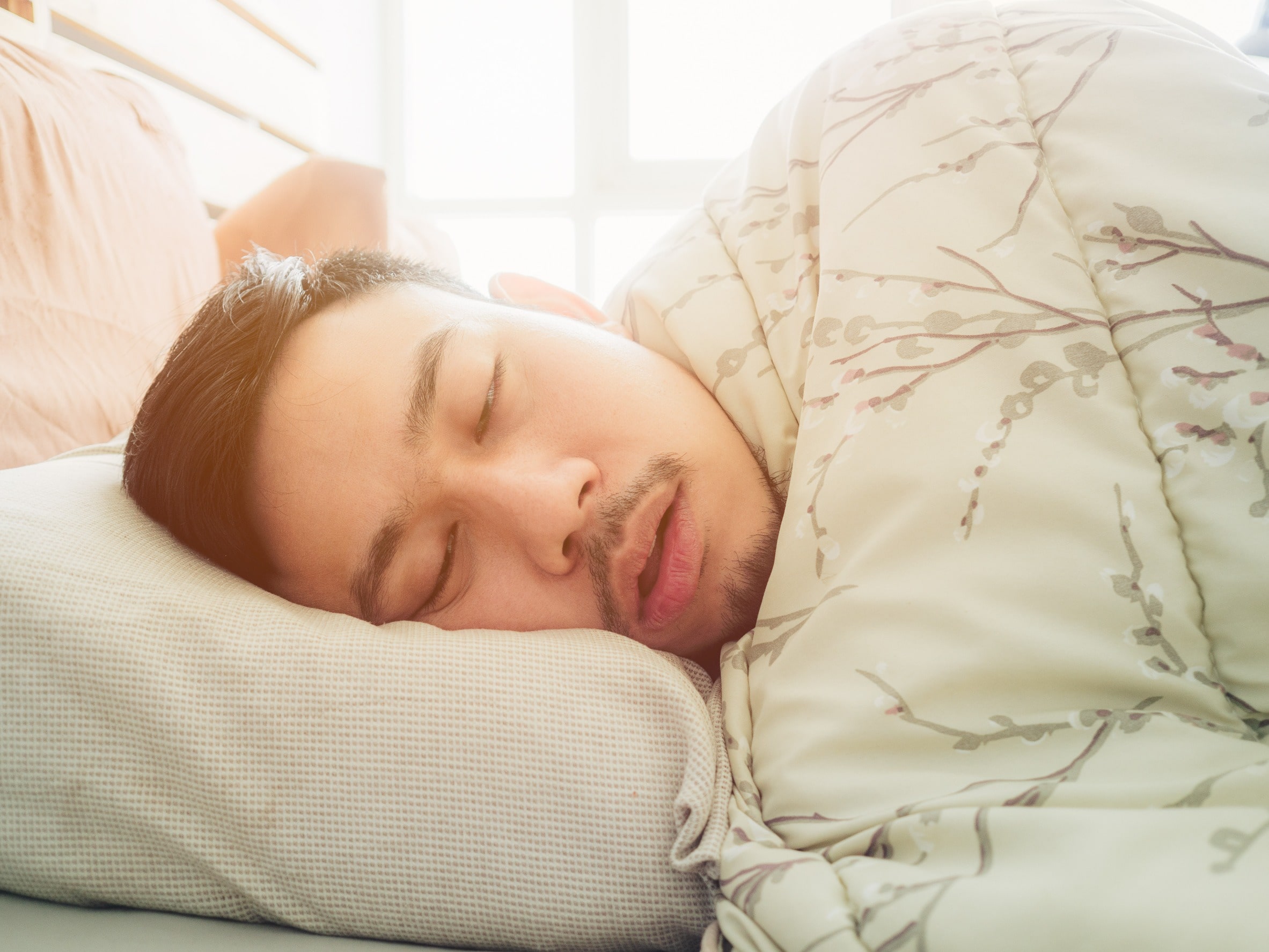Ingenious Insomnia Solutions - Discover What Works for You
Ingenious Insomnia Solutions - Discover What Works for You
Blog Article
Effective Therapy Solutions for Taking Care Of Rest Disorders and Enhancing Relaxed Rest
In the world of health care, the monitoring of rest disorders and the quest for peaceful rest are pivotal components of general wellness. As we navigate the intricate landscape of sleep problems and seek to boost our sleep experience, a deeper understanding of these treatment services might hold the trick to unlocking a more refreshing and satisfying restorative trip.
Cognitive Behavior Modification for Insomnia (CBT-I)
Cognitive Behavioral Therapy for Sleeplessness (CBT-I) is an organized, evidence-based therapy approach that focuses on addressing the underlying variables contributing to rest disruptions. This kind of treatment aims to change behaviors and thoughts that aggravate sleeping disorders, ultimately advertising healthy sleep patterns. CBT-I usually includes numerous essential components, including cognitive therapy, sleep restriction, stimulus control, and sleep hygiene education and learning.
Cognitive therapy helps people recognize and transform negative thought patterns and beliefs concerning rest that might be preventing their capability to fall or stay asleep. Rest constraint includes restricting the amount of time spent in bed to match the individual's real rest period, therefore increasing rest performance (insomnia therapy). Stimulus control strategies help develop a strong organization in between the bed and sleep by encouraging people to visit bed just when sleepy and to prevent engaging in boosting tasks in bed
In addition, rest hygiene education and learning focuses on establishing healthy rest habits, such as maintaining a constant rest schedule, developing a relaxing bedtime regimen, and maximizing the sleep setting. By dealing with these factors comprehensively, CBT-I supplies an efficient non-pharmacological intervention for handling sleeplessness and improving total sleep top quality.
Sleep Health Practices
Having actually established the structure of cognitive restructuring and behavioral alterations in addressing sleep problems through Cognitive Behavioral Treatment for Sleeping Disorders (CBT-I), the emphasis now moves in the direction of checking out important Rest Health Practices for maintaining ideal rest quality and general health.
Rest hygiene methods incorporate a variety of routines and ecological factors that can substantially impact one's ability to go to sleep and remain asleep throughout the night. Consistent sleep and wake times, developing a relaxing going to bed routine, and optimizing the rest environment by keeping it dark, peaceful, and cool are crucial elements of great rest health. Restricting direct exposure to screens before bedtime, preventing energizers like high levels of caffeine near going to bed, and participating in regular physical activity during the day can likewise advertise much better rest top quality.
Furthermore, practicing relaxation strategies such as deep breathing workouts or reflection before bed can help calm the mind and prepare the body for sleep. By including these rest health techniques right into one's day-to-day regimen, individuals can establish a healthy rest pattern that sustains relaxing sleep and total health.
Leisure Strategies and Mindfulness
Implementing relaxation strategies and mindfulness methods can play a pivotal duty in cultivating a sense of calm and promoting quality rest. sleep deprivation help. These methods aim to silent the mind, lower anxiety, and produce an optimal setting for relaxing rest. One commonly practiced approach is deep breathing exercises, where people concentrate on slow-moving, see here deep breaths to kick back the body and mind. Progressive muscle mass relaxation entails tensing and afterwards releasing each muscular tissue group, advertising physical relaxation. Furthermore, assisted imagery can assist move individuals to a tranquil area in their minds, helping in stress decrease and enhancing sleep top quality.
By incorporating these methods into a bedtime regimen, individuals can signal to their bodies that it is time to prepare and relax for sleep. Generally, incorporating leisure methods and mindfulness techniques can dramatically contribute to managing sleep problems and improving overall sleep high quality.

Medication Options for Sleep Disorders
After discovering relaxation techniques and mindfulness methods as non-pharmacological treatments for boosting sleep high quality, it is vital to consider medication choices for people with rest problems. In cases where way of living changes and treatment do not give sufficient alleviation, medication can be a beneficial device in handling sleep disruptions.
Frequently suggested medicines for sleep page problems consist of benzodiazepines, non-benzodiazepine hypnotics, antidepressants, and melatonin receptor agonists. Antidepressants, such as trazodone, can be beneficial for people with co-occurring clinical depression and sleep disruptions - insomnia specialist.
It is vital for individuals to speak with a doctor to figure out the most appropriate medicine option based upon their certain sleep problem and clinical history.
Light Treatment for Body Clock Law
Light treatment, additionally called photo-therapy, is a non-invasive therapy technique made use of to control body clocks and enhance sleep-wake cycles. This therapy includes direct exposure to brilliant light that resembles all-natural sunlight, which assists to reset the body's internal clock. By exposing people to certain wavelengths of light, normally in the morning or evening depending upon the desired result, light treatment can effectively readjust the body clock to advertise wakefulness throughout the day and boost relaxing rest during the night.
Research has revealed that Full Report light treatment can be especially useful for individuals with body clock disorders, such as postponed sleep stage disorder or jet lag. It can likewise be useful for those experiencing seasonal affective problem (SAD), a kind of depression that usually takes place during the cold weather when all-natural light direct exposure is lowered. Light treatment is generally well-tolerated and can be utilized together with various other therapy approaches for sleep disorders to enhance end results and enhance total sleep top quality.
Conclusion
Finally, efficient therapy services for handling sleep conditions and improving relaxing sleep include Cognitive Behavioral Therapy for Sleeplessness (CBT-I), rest health techniques, leisure strategies and mindfulness, drug options, and light therapy for circadian rhythm policy. These methods can aid people improve their sleep high quality and overall wellness. It is very important to seek advice from with a health care supplier to establish the most suitable technique for resolving sleep issues.
As we browse the detailed landscape of rest problems and look for to improve our rest experience, a deeper understanding of these therapy solutions might hold the trick to unlocking a much more refreshing and fulfilling restorative trip.
Rest constraint entails limiting the amount of time spent in bed to match the individual's actual sleep duration, consequently increasing rest efficiency. Constant rest and wake times, producing a relaxing bedtime regimen, and enhancing the rest setting by keeping it dark, quiet, and cool are vital elements of great sleep health. Light therapy is normally well-tolerated and can be used in conjunction with other treatment techniques for rest disorders to optimize end results and boost total rest quality.

Report this page